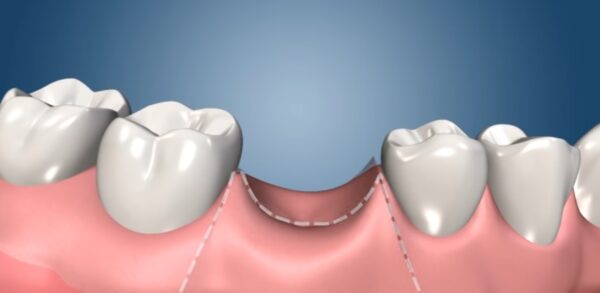Vitamin D is a fat-soluble vitamin that is essential for the absorption of calcium which is necessary for the maintenance of healthy bones and teeth. The primary source of vitamin D is the sun and many people are not getting enough of it through sun exposure or their diets. This can cause to a deficiency which can cause a number of health problems.
One of the most important roles of vitamin D is in the absorption of calcium. Calcium is essential for the development and maintenance of healthy bones and teeth. Without enough vitamin D, body is unable to absorb enough calcium from the diet, cause to a condition known as rickets in children and osteomalacia in adults. Both of these conditions cause the bones to become soft and weak, cause to deformities and an increased risk of fractures.


Vitamin D is also important for the immune system, as it helps to regulate the production of white blood cells, which are crucial for fighting off infections. Deficiency of vitamin D can make a people more susceptible to infections and other illnesses. Additionally, vitamin D has been shown to have anti-inflammatory effects, which can help to reduce the risk of chronic diseases like heart disease and diabetes.
In order to get enough vitamin D, it is helpful to spend time in the sun. Body is able to produce vitamin D when the skin is exposed to ultraviolet (UV) radiation from the sun. But it is important to be careful when spending time in the sun, as too much UV radiation can damage the skin and increase the risk of skin cancer. It is generally recommended to spend about 10-15 minutes in the sun each day, without the use of sunscreen, in order to allow the body to produce enough vitamin D.
Vitamin D is one of the magical gifts that the sun presents to humanity for healthy life that reduces the risk of the bone disease, nervous system, skin, heart disease and diabetes.
Vitamin D is necessary for health and strong bone structure as well as for our teeth. Greatest source of vitamin D, which is fat soluble and synthesises in our body after being subjected to ultraviolet (UV) sun rays, in the sun. Approximately 80-90 percent of the required vitamins are synthesized in the skin with ultraviolet rays emitted by the sun, while remaining 10 to 20 percent are obtained from nutrition. Vitamin D, which is one of the most important vitamins that the body needs so enables the calcium in the bones and tooth tissue to be effectively used in the body.
Vitamin D defficiency can cause certain symptoms. Slow growth in babies and children, walking late, teething late and more frequent infections can be seen. Bone and muscle pain, hair loss, depression, difficulty in loosing weight, excessive sweating, continual feeling of cold and difficulties with activities such as climbing stairs are the symptoms seen are adults.



How we can get maximum vitamin from sun?
1. Timing Matters
- Midday Sun: The sun is at its highest point, usually between 10 a.m. and 2 p.m. This is when UVB rays, essential for vitamin D production, are most intense.
- Shorter exposure during this time can be effective without overexposure.
2. Skin Exposure
- Expose larger areas of skin, like arms, legs, and face, for optimal vitamin D synthesis.
- Avoid sunscreen during short exposures, as it blocks UVB rays.
3. Duration
- Light Skin: About 10–30 minutes of sun exposure several times a week can be enough.
- Darker Skin: Longer exposure is needed, as more melanin reduces UVB absorption.
- Overexposure increases the risk of skin damage, so tailor the time to your skin type and location.
4. Geographical Location
- People living closer to the equator have more consistent UVB exposure year-round.
- In higher latitudes, vitamin D production is limited during the winter months, requiring supplements or dietary sources.
5. Weather and Season
- Clear skies and summer months provide the best conditions for UVB rays. Cloud cover and pollution can reduce UVB intensity.
6. Health and Lifestyle Considerations
- Age, weight, and medical conditions can affect vitamin D synthesis. Older adults and people with higher body fat percentages may need more sun exposure.
7. Safety Precautions
- Avoid prolonged exposure to prevent sunburn and long-term risks like skin cancer.
- Use sunscreen after your brief sunbathing session if staying outdoors longer.
8. Supplementation if Needed
- If adequate sun exposure isn’t possible, consider taking vitamin D supplements after consulting a healthcare provider.
Bonus Tips:
- Monitor your vitamin D levels with periodic blood tests if you suspect a deficiency.
- Include vitamin D-rich foods (e.g., fatty fish, egg yolks, fortified milk) in your diet to complement sun exposure.
Innumerable Benefits
People who have limited contact with the sun are high risk group for vitamin d deficiency. Those who live in the northern regions, who remain indoors for long periods of time, adults over the age of 70, have dark skin, live in community that wear tradional clothing, who are obese and who take medication that affects the metobolism of vitamin d are at risk of having vitamin d deficiency.
The best source of vitamin D is ultraviolet rays. Synthesis of vitamin d begins in the skin of those who come into contact with sunlight and active production of vitamin d starts in the kidneys. Around 90 percent of the body’s vitamin needs are met through this method. At least 25 percent of the body (hands,arms,legs,face) must be exposed to the sun for 15-20 minutes for vitamin d to be produced in the skin.
Although vitamin D is known for increasing the amount of calcium that is dissolved, benefiting bone and tooth development, it has many more benefits. The most important of these is the effects it has on the immune, muscle and nervous systems. Vitamin D strengthens the immune system, increasing the body’s resistance to viruses and bacteria that cause diseases. Another important benefit of vitamin D is that regulates moods and plays a role in preventing chronic tiredness, anxiety and depression. It also plays an important role in enabling a healthy nervous system regulating the development and functions of the brain. Storing sufficient amount of vitamin D throughout a lifetime helps prevent neurology problems caused by ageing. While research shows that vitamin D has an effect in preventing cancer, vitamin D deficiency increase the risk of colon cancer. Therefore, the only thing that you must do to prevent vitamin D deficiency is to have a good relationship with the sun.
For get enough vittamin D hrom sun its not necessary summer days with shining sun, you can get in cloudy days because clouds are filter UV lights and radioactive radiation and your skin could get what you need from sun. But overexposure sun light may be very dengerous without protection. Some skin types are very sensitive to sun lights and overexposure can be some unwanted effects such as skinspot and others.
Enjoy sun ligh. We wish healthy life to you.

